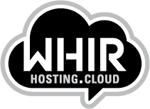SoftLayer Founder Crosby Shares Lessons of SuccessSoftLayer Founder Crosby Shares Lessons of Success
July 29, 2015


logo-WHIR
Story by TC Doyle for The WHIR
Chairman and CEO of “To Be Announced.”
A lot of business practitioners would have a hard time listing that as their current position in their LinkedIn profile. But not Lance Crosby.
Crosby, of course, is the founder and former CEO of SoftLayer. In 2013, he sold the company to IBM for $2.1 billion. In February of 2015, he resigned his executive post as the General Manager of Big Blue’s cloud business. Since then, the industry has awaited his next move.
Crosby has been tight-lipped for the most part about his plans, but has made it clear through social media and other forums that he has some ideas under consideration. Before tipping his hand, the entrepreneur reflected on what made him successful, and what lessons he can pass along to others in the technology hosting industry. On July 27, Crosby shared his ideas in a keynote address at the HostingCon Global 2015 Conference underway this week in San Diego. His presentation to a packed crowd of several hundred hosting companies and technology developers was a mix of to Sun Tzu, Dale Carnegie and Stephen Covey.
For those that do not know his story, it’s worth recapping how SoftLayer came into being 10 years ago this week. Before launching the company, Crosby served as COO of one of the largest hosting companies in the business. Dissatisfied with the direction the company was taking, Crosby invited 11 colleagues to a breakfast one morning in May 2005 to discuss their future. In the subject line of the email invite, he typed, “Time to Go.”
At breakfast the following morning, he presented an idea for a new kind of technology company. The organization, he explained, would pre-rack and stack all of the technologies in data center that customers needed to power up key services in under an hour. Though commonplace today, the idea was a revolution a decade ago. After breakfast, nine of the 11 invitees resigned. They did so rather cheekily, handing in one resignation letter, from the living room of Crosby’s home.
For several weeks, Crosby and his team shared ideas and visions for their new cloud company. Try as they might, they could never get their vision codified in any way that would lead to a commercially viable business. Frustrated, Crosby sent the team home one Friday and asked that they all return with a solid plan the following Monday. None of them made any progress, however. Exasperated, he demanded that his team pitch him despite their reservations. The more he pushed, the more outlandish their ideas became. Initially, the plans were too expansive. Then they were too technically complex. But Crosby persisted in his demand that they refine their thinking and push through the status quo and pre-conceived ideas. And then the team began collaborating on an idea that was the inspiration behind SoftLayer.
The team devised a cloud service that brought together three disparate networking services in a scalable, reliable way. Although it the idea was prohibitively expensive on paper—as much as three times over other designs—Crosby was convinced that the team was onto something.
Go Big
The idea gave birth to SoftLayer, which launched officially on July 28, 2005. From the experience, Crosby says he learned an invaluable lesson: When envisioning the future, don’t allow everyday limits restrict your thinking. If his team had thought more conservatively, he told his audience, SoftLayer would never have been the disruptive force that it eventually became.
To get to that point, SoftLayer had to survive some difficult times. The team’s former employer, for example, did not take the well to the mass resignation that Crosby inspired. Hoping to slow if not punish Crosby, it filed a lawsuit listing 179 causes of action against he and the new company. While such a burden would have derailed many entrepreneurs, Crosby dug in deep. Doing so taught him another invaluable business lesson: Never let anyone push you around. What is more, he discovered, the more aggressive your adversary, the more fearful of disruptive innovation they may be, he said.
Brashness aside, SoftLayer ran into difficult financial times. Without a finished product to sell, the company’s financial liabilities started to pile up. Fearing for the company’s future, Crosby asked that everyone at SoftLayer put money into the company. He himself, put $1 million of his own money into it. Others took out second mortgages on their homes while still more hit up relatives for seed money. Even the company’s youngest employee, a 22-year old engineer at the time, was pressured to invest in the company. Lacking any cash, Crosby persuaded the young man to maxx out his credit card to the tune of $5,000.
While some might think the move was overly aggressive if not predatory, Crosby said the gesture paid huge dividends—figuratively and literally. When everyone has “skin in the game,” he told his audience at HostingCon, the team becomes more committed. As for the $5,000 investment the young worker was “forced” to put into the business, it turned into a $16 million windfall for the individual when IBM bought SoftLayer.
Try as it might to get by without a product, the company eventually ran into more money problems. So Crosby insisted that it go live with its product. Though his engineers objected because their work was not yet finished, Crosby insisted. Truth be told, he had little choice. SoftLayer needed revenue and it wasn’t getting anymore money without sales. “We created continuous deployments on that day,” he told the crowd in San Diego.
And live the company went. Though its service offered only four or so basic capabilities, it was enough to attract some early customers. “Good enough technology,” he learned, will suffice when perfect is not an option.
With a product at the ready, SoftLayer generated $4 million in sales in its first year. Fueled with cash flow, Crosby sought out investors. Though turned down 72 times, he persisted. Finally, he found some angel investors willing to put money into the company. But he needed more money still. So he took out loans that charged 30 percent interest. Although the decision violated his sense of financial propriety, the entrepreneur in him knew it was the right thing to do.
“People get hung up on rules or ideals when striving to build a business,” he said. “But I didn’t. I knew I could make money with that rate, so I took the terms.” He advises others do the same. When faced with an unprecedented opportunity, don’t let conventional thinking limit your actions.
With momentum rolling, SoftLayer began attracting a great deal of attention. Sales grew to $4 million. Then $16 million, then $40 and finally they reached $80 million.
The one thing he couldn’t shake, however, was the lawsuit that dogged him from the beginning. So Crosby did the unthinkable: he decided to cut a deal with the company that was suing him. Despite the animosity that existed between the two organizations, he believed a merger might be the best way forward. Initially he was rebuffed. But two weeks later, representatives from The Planet contacted him and said, “we’re interested.”
Crosby cut the deal and SoftLayer and The Planet became one. When they did, the two organizations created the largest private hosting and cloud services provider in the world. For the next six months, Crosby painstakingly integrated the two companies. The work was particularly difficult because he had to work some people whose affections he previously alienated. But then a wonderful thing happened: the companies meshed and growth resumed anew. The experience taught Crosby to look beyond personal feelings and do the right thing by the company. It also taught him to be aggressive and propose the unthinkable when the moment strikes.
SoftLayer taught him additional lessons. One of the most important was timing. In the spring of 2012, he began to believe that the company needed greater scale to compete with the likes of Amazon and others. So he approached investors and told them it was time to sell. Most were stunned. We’re growing at 30-40 percent a year, they noted. But Crosby insisted. When IBM paid $2.1 billion in cash for the company, he was relieved, realizing another lesson, one played out in business a million times over: timing is everything.
“Entrepreneurs start, run and then sell companies,” he said. “That’s what we do.” Though he said he learned a great deal at IBM, he realized that working for a big, established global power wasn’t for him. So he walked away.
Looking back, Crosby said his experience at SoftLayer taught him volumes about himself and business.
Among the lessons he learned: be bold and aggressive, and don’t back down from bullies. SoftLayer also taught him to act boldly and do the unthinkable in many instances. It reinforced how important timing is, and what it means to put skin in the game. It also taught him how important culture is to a company. Though young and hungry, he always made sure his employees had a world class healthcare plan and that their office environs were the best that he could afford. As a result, few bailed on him when times were tough.
Finally, SoftLayer taught him to listen to his heart. An entrepreneur through and through, Crosby told his audience at HostingCon that a world of great ideas awaits. You can translate that to mean that he will fill in the blank on his LinkedIn profile where it says “Chairman and CEO of ‘To Be Announced’” someday soon.
When he does, an entire industry will take note.
This first ran at https://www.thewhir.com/web-hosting-news/softlayer-founder-shares-lessons-of-success-at-hostingcon
About the Author
You May Also Like







